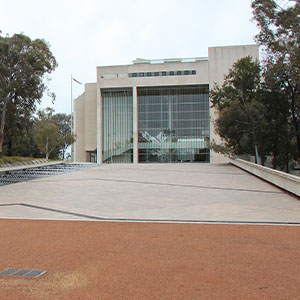This judgment concerned the transfer of proceedings between State Supreme courts under s 1337H(2) of the Corporations Act 2001 (Cth), and the relevance of a group costs order (GCO) having been made by the Supreme Court of Victoria pursuant to s 33ZDA of the Supreme Court Act 1986 (Vic).
Background
This shareholder class action was commenced in the Supreme Court of Victoria (SCV) in August 2020 against the directors of Arrium Ltd (Arrium) and their auditor (KPMG). The plaintiffs applied for a GCO in February 2021, which was shortly followed by an application by KPMG to transfer the proceedings to the Supreme Court of New South Wales (NSWSC) pursuant to s 1337H(2) of the Corporations Act.
Section 1337H(2) of the Corporations Act allows a court to transfer a proceeding to another court if it appears to the first court that, “having regard to the interests of justice”, it is more appropriate for the second court to determine the matter. KPMG’s application was made on the basis that most parties (including Arrium) and their legal teams, were based in NSW, which was also where the alleged conduct occurred.
The Supreme Court of Victoria ordered that the GCO application be determined prior to the transfer application (this order was unopposed by the parties). On 3 May 2022, the SCV made the GCO.
Justice Nichols reserved the following questions for the consideration of the Victorian Court of Appeal:
- If the proceedings were transferred to the NSWSC, would the GCO remain in force and be capable of being enforced, varied or revoked by that court?
- In exercising the discretion to transfer proceedings to another court under s 1337H(2) of the Corporations Act, is the existence of the GCO relevant?
- Should the proceedings be transferred?
Supreme Court of Victoria – Court of Appeal
The Victorian Court of Appeal unanimously held that the GCO would not remain in force if the proceedings were transferred to the NSWSC. The fact that a GCO had been made by the SCV, and would be incapable of enforcement by the NSWSC, was found to be relevant to the transfer application, and consequently the proceeding should not be transferred.
KPMG successfully applied to have the matter removed to the High Court under section 40(2) of the Judiciary Act 1903 (Cth).
High Court decision
The majority of the High Court agreed with the Victorian Court of Appeal, upholding its reasoning while providing authoritative guidance on GCO transferability.
Would the GCO remain in force if the proceedings were transferred?
KPMG, supported by the Attorney-General as Intervener, argued that s 1337P(2) of the Corporations Act would operate to give the GCO force and effect if the Arrium class action was transferred to the NSWSC.
However, the High Court emphasised that s 1337P(2) is not a conferral of power on a transferee court but simply a legislative direction as to how that court is to deal with any proceeding that has been transferred to it, in the exercise of the powers that it already possesses. When a state court exercises federal jurisdiction, by operation of s 79 of the Judiciary Act, state laws "are picked up and applied as a Commonwealth law to govern the exercise of federal jurisdiction by a court in that State".
If the proceedings were transferred to NSW, NSW laws would be picked up instead of Victorian laws. Therefore, in circumstances where it was common ground that the NSWSC has no power to make GCOs, the High Court determined that on its proper construction, s 1337P(2) would not operate to give legal force to the GCO if the Arrium class action were transferred to the NSWSC.
Justices Gageler, Gordon, Gleeson, Jagot and Beech-Jones noted (at [62]) that the contrary interpretation contended by KPMG:
..would require the Supreme Court of New South Wales as the transferee court to treat the Arrium class action GCO as if it had been an order made by the Supreme Court of New South Wales, and so potentially to enforce the Arrium class action GCO against members of the represented class, despite the making of such an order against members of the represented class being prohibited by s 181 of the Civil Procedure Act
Was the fact that a GCO had been made relevant to whether the proceedings should be transferred?
A majority of the High Court held that the making of a GCO by the SCV is relevant to the court's consideration of the exercise of the power conferred on it by s 1337H(2) of the Corporations Act, being whether the proceeding should be transferred “having regard to the interests of justice”.
There was considerable risk that the present proceeding would not be able to continue without the GCO, as it could not otherwise be viably funded and the claims would likely have to be abandoned. The existence of a GCO, as an order concerned with access to justice, was therefore found to be plainly relevant. The majority of the court held (at[78]):
The Court of Appeal was correct to conclude that the Arrium class action GCO weighed decisively against transfer being in the interests of justice given the considerable risk that the Arrium class action would not be able to continue in the absence of the Arrium class action GCO with the result that the claims of the plaintiffs and group members would have to be abandoned.
Accordingly, the court ordered that the proceeding should not be transferred to the NSWSC.
Bogan v Estate of Peter John Smedley (Deceased) [2025] HCA 7
High Court of Australia | 12 March 2025
Applicants’ Solicitors: Banton Group
Respondents’ Solicitors: Baker McKenzie (First to Fourth Respondents) and Ashurst (Fifth Respondent)
Intervener’s Solicitors: Australian Government Solicitor
We're here to help
Contact us today
Learn more about our class actions work
We're Australia's leading class action practice, and we've obtained more than $5 billion in settlements for our clients.
Easy ways to get in touch
We are here to help. Give us a call, request a call back or use our free claim check tool to get in touch with our friendly legal team. With local knowledge and a national network of experts, we have the experience you can count on.
Office locations
We’re here to help. Get in touch with your local office.
Select your state below
- VIC
- QLD
- NSW
- WA
- ACT
- SA
- TAS
- NT
We have lawyers who specialise in a range of legal claims who travel to Australian Capital Territory. If you need a lawyer in Canberra or elsewhere in Australian Capital Territory, please call us on 1800 675 346.
We have lawyers who specialise in a range of legal claims who travel to Tasmania. If you need a lawyer in Hobart, Launceston or elsewhere in Tasmania, please call us on 1800 675 346.


